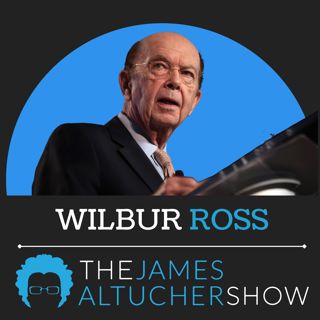
Obsession, Chess, and the Myth of Mastery | James & Dirk Jan ten Geuzendam on the "New in Chess" Podcast
A Note from James:So the question is, I really feel that in order to get not good at something, but great at something, you have to be obsessed. You can't just wake up and decide to be obsessed—it has to be deep, almost irrational. Obsession is like addiction. It throws your life off balance, and yet... there’s this insane joy when you enter the subculture of your obsession and get better at it.I’ve seen this recently in crypto. I saw it in chess in Norway, commenting on what might’ve been the best chess tournament ever. And I felt it again when I sat down with Dirk Jan ten Geuzendam from New In Chess.We didn’t just talk about chess. We talked about obsession, aging, failing at something you love, and trying to find your place in a subculture that’s moved on without you.If you care about learning, obsession, or just love chess, you’re going to get something out of this episode. Dirk and I recorded this in Stavanger, Norway. I hope you love this conversation as much as I did being a part of it.Episode Description:What does it mean to return to your first love after nearly 30 years away? In this special crossover episode, James Altucher sits down with Dirk Jan ten Geuzendam, editor of New In Chess magazine, to reflect on his lifelong (and recently rekindled) obsession with chess. They explore how obsession shapes mastery, why wisdom sometimes trumps raw skill, and what it’s like to try and reclaim an old identity as an older version of yourself.James opens up about losing games to kids half his age, obsessively chasing improvement, and why it still might be okay to fail—as long as the journey is honest. From teenage blitz tournaments to dinner with Garry Kasparov, from neuroscience to narrative writing, this episode is as much about how to live as it is about how to play.What You’ll Learn:Why obsession is both a superpower and a dangerHow James approaches relearning chess after a 27-year breakWhat changes in the brain as we age—and how to work with itThe surprising ways chess opens doors in life, business, and writingWhy storytelling and vulnerability matter more than "success" aloneTimestamped Chapters:[00:00] The Power of Obsession[01:00] Travel Tales: Norway and Crypto[03:00] Chess Commentary and Podcasting with Dirk Jan[05:00] Dirk Jan's Intro on James Altucher[08:00] James' Curiosity and Love of Learning[10:00] Starting Chess at 17 and Becoming Addicted[13:00] Losing to Irena Krush and Facing Limits[17:00] Chess, Ego, and Real-World Consequences[22:00] How Chess Skills Apply to Business Problems[26:00] Writing as a Path Through Vulnerability[33:00] Returning to Chess: Memory, Aging, and Rediscovery[37:00] Eric Rosen, Coaches, and Mental Decline[41:00] Pattern Recognition vs. Calculation[47:00] What Makes Chess Players Unique[50:00] Interviewing Kasparov, Judit Polgar, Hikaru[56:00] Obsession and the Myth of Talent[58:00] Will the Book Get Written?[60:00] The James Altucher Invitational[62:00] Reflecting on the JourneyAdditional Resources:📘 New In Chess Magazine – The legendary publication covering elite and amateur chess alike🎙️ New In Chess Podcast – Hosted by Dirk Jan ten Geuzendam📚 Choose Yourself by James Altucher📺 Eric Rosen’s YouTube Channel – Where James first relearned modern chess💻 Chess.com – Popular online chess platform♟️ lichess.org – Free, open-source chess platform📘 Game Changer by Matthew Sadler & Natasha Regan – On AlphaZero’s influence on modern chess🧠 Andrew Huberman's Podcast – Neuroscience insights referenced in the episodeSee Privacy Policy at https://art19.com/privacy and California Privacy Notice at https://art19.com/privacy#do-not-sell-my-info.
15 Juni 1h 2min

Michael Dell vs. Wall Street: Dorm Room to Billion-Dollar Battles
A Note from James:Michael Dell. Founder of Dell. I remember in college, hearing about this kid who was building computers in his dorm and making millions. I thought it was a myth. It wasn’t. He’s the real thing—and he just kept going.I wanted to understand what drove him, what it felt like to deal with Carl Icahn trying to wrestle his company from him, and what success feels like after decades of being in the game. Also: I had to ask why Dell didn’t invent Google. That, plus how he’s now thinking about AI, cancer, and what “focus” really means.Episode Description:James Altucher sits down with Michael Dell, founder and CEO of Dell Technologies, to trace the entire arc of Dell's career—from building computers in a college dorm room to defending his company against Carl Icahn and taking it private. In this candid conversation, Dell shares how early obsession with tech and business turned into a multibillion-dollar global enterprise, the lessons he’s learned about leadership, and how he’s positioning for the future with AI, cybersecurity, and gene tech on the horizon.This is more than a business story. It’s about risk, conviction, reinvention—and knowing when to walk away from Steve Jobs.What You’ll Learn:How Dell’s dorm-room business scaled to $80,000/month before he even left collegeWhat Michael Dell really thought during his showdown with Carl IcahnWhy most big companies fail to innovate—and how to keep a startup mindsetHow Dell Technologies is preparing for the explosion in AI and edge computingWhat makes a good leader at the head of a $100 billion companyTimestamped Chapters:[00:00] James introduces Michael Dell and the origin story of Dell Computers[01:00] The economics of building PCs in the early 1980s[03:00] Winning state bids with a bike and a dorm room[05:00] Pressure to become a doctor—and the 10-day “intervention”[10:00] Meeting Steve Jobs and licensing DOS from Bill Gates[13:00] Dell’s early B2B focus and international expansion[15:00] Going public and the Icahn showdown[18:00] How activist investors play poker with billion-dollar stakes[21:00] What focus really means in business[24:00] Defining leadership at global scale[26:00] Encouraging innovation inside massive companies[28:00] The failed Mac OS licensing deal[30:00] Philanthropy, education, and urban poverty[33:00] COVID lockdowns and a $100M response[35:00] The future of work and city migration[39:00] AI, edge computing, and exponential data[42:00] Gene editing, mRNA vaccines, and solving cancer[45:00] Blockchain in enterprise (no bitcoin on Dell’s balance sheet—yet)[47:00] Why cybersecurity is an arms race\Additional Resources:Play Nice But Win – Michael Dell’s memoir (Amazon)Dell Technologies – Official websiteJudge rejects Icahn's move on Dell buyout – CT InsiderRichard Florida on the future of cities – Vital City NYC interviewWhat is CRISPR? – Broad InstituteHistory of MS‑DOS – WikipediaSee Privacy Policy at https://art19.com/privacy and California Privacy Notice at https://art19.com/privacy#do-not-sell-my-info.
12 Juni 52min

Part 5: How to Write and Publish Your First Book in 30 Days - The Four Book Frameworks
Notes from James:Most people get stuck at the idea stage. That’s why I’m sharing frameworks—so you’re not staring at a blank screen. These techniques have helped hundreds of people (including me) go from idea to published book in just 30 days.Episode Descriptions:In Part 5 of my 30-day writing series, I unveil four of the most powerful book-writing frameworks I’ve ever used or taught—and they’ve helped hundreds of people write their first book in just a month. These aren’t theoretical. They’re real-world, repeatable methods that have led to bestsellers, media appearances, consulting gigs, and new careers.From the "101 List Technique" to the "Jesus Diet" method, each framework simplifies your creative process, helps you structure your ideas fast, and shows you how to turn your interests into income. I even share how you can write a book using past podcast interviews or unreadable academic research.If you’ve ever thought, “I have an idea, but I don’t know how to turn it into a book,” this episode gives you the blueprint—four times over.What You’ll Learn:The “101 List” format and why people LOVE books with listsHow to turn your podcast (or other content) into a book—step by stepThe “Jesus Diet” method and how to combine timeless concepts with trending topicsWhy academic research papers are gold mines (and how to use them to write your book)How to choose a niche, research efficiently, and find your book’s unique angleThe truth about book length—and why shorter can be betterTimestamps00:00 Introduction and Excitement00:17 Bonus Framework: The Podcast Technique04:43 Framework 1: The 101 Technique13:30 Framework 2: The Habits Technique18:30 Framework 3: The Jesus Diet Technique27:37 Framework 4: The Academic Research Technique33:00 Conclusion and EncouragementP.S. Want to go deeper? Check out my full course on Udemy or visit chooseyourselfacademy.com: How to Write and Publish a Book in 30 Days – available now.See Privacy Policy at https://art19.com/privacy and California Privacy Notice at https://art19.com/privacy#do-not-sell-my-info.
5 Juni 33min

Shoveling Sh*t: Entrepreneurs’ Secrets to a $700M Exit with Michael & Kass Lazerow
Episode Description:James reconnects with entrepreneurs Michael and Kass Lazerow, whose journey spans selling Golf.com for $24 million, launching and pivoting Buddy Media into a $700 million Salesforce acquisition, and now investing in breakout brands like Liquid Death. This episode isn’t about startup clichés—it’s about emotional resilience, firing with kindness, how marriage can (barely) survive co-founding, and how to spot a trend before the world does.They break down their “Go Gauge,” the six-part test they use before investing in a company. They talk about the trauma of being betrayed by family. And they reveal the surprisingly simple cheat codes they’ve used to keep building—and keep loving each other—across decades of risk. Whether you're building a business, looking for one good idea, or wondering what failure really feels like behind closed doors—this episode will give you a few new answers.What You’ll Learn:Why transparency—not optimism—is a founder’s best crisis toolThe six traits every idea needs to pass their “Go Gauge”How to fire someone with empathy and still tell them the truthWhat to do when your startup fails and the investors vanishWhy the best startup strategy might be launching a pizza shopTimestamped Chapters:[00:00] Bacon, milkshakes, and a first meeting[03:00] The Golf.com collapse and family betrayal[07:30] The psychology of failure and the will not to quit[12:00] Buddy Media’s pivot: from Facebook games to SaaS[15:00] Why failure sucks—but trends are your friend[21:00] Surviving marriage while surviving a startup[26:00] Emotional awareness, therapy, and not “shining the turd”[33:00] The $500M pizza truck startup fail[38:00] The truth about hiring, firing, and reorganizing[44:00] The death of venture capital—and rise of bootstrapping[50:00] Investing in pets, ice cream, and par-3 golf[54:00] Why Liquid Death is a billion-dollar brand[57:00] The Go Gauge: 6 filters for a fundable idea[01:02:00] Friendship, failure, and why they finally wrote the bookAdditional Resources:📘 Shoveling Sh*t: A Love Story About the Entrepreneur’s Messy Path to Success by Michael and Kass Lazerow💧 Liquid Death – The canned water startup redefining beverage branding🧾 Slice – Supporting independent pizza shops with tech🐎 Commonwealth – Fractional ownership of racehorses and athletes🍦 Van Leeuwen Ice Cream – The indie creamery with 70+ locationsSee Privacy Policy at https://art19.com/privacy and California Privacy Notice at https://art19.com/privacy#do-not-sell-my-info.
3 Juni 1h 3min

Part 4: How to Write and Publish Your First Book in 30 Days – Self-Publishing, Traditional Deals, and Making Real Money
Notes from James:Let’s be honest: most people who write a book never make money from it. Why? Because they stop at the last page. I want you to go further. In this episode, I show you how I turned my books into speaking gigs, consulting work, investment deals, and more. You don’t need a big publisher or a massive budget—just the right strategy.Episode Descriptions:In Part 4 of my 30-day writing series, I tackle one of the biggest questions aspiring authors face: Should you self-publish or go the traditional route? I’ve done both—some of my books were published by big-name houses, others I put out myself. This episode breaks down the pros, cons, and misconceptions of each approach—and how to make the smartest decision for your goals.You’ll also learn exactly what to do after the writing is done. I cover how to market your book, build buzz, land media, grow your audience, and ultimately make your book work for you—financially, professionally, and personally.Whether you're writing your first book or your fifth, this episode lays out the modern publishing roadmap and how to turn your words into real-world results.What You’ll Learn:The truth about traditional publishing—what it offers and what it takes awayWhy self-publishing can earn you more money and give you more controlWhat agents, publishers, and bookstore placement actually mean todayHow bestseller lists really work (and why most are just marketing tools)Exactly how to market your book after it’s published: newsletters, podcasts, and moreHow to build momentum before your book even comes outTimestamps00:00 Traditional vs. Self-Publishing: The Debate Begins00:41 The Evolution of Self-Publishing01:10 Benefits of Traditional Publishing03:17 Challenges with Traditional Publishing06:58 The Power of Self-Publishing15:09 Steps to Professionally Self-Publish16:34 The Importance of Audiobooks21:15 Marketing Your Book: An Overview21:53 Building and Utilizing an Email List24:48 Leveraging Online Platforms for Book Promotion27:08 The Power of Podcasts and Public Speaking32:31 Maximizing Social Media for Book Sales38:47 Final Thoughts on Book MarketingP.S. Want to go deeper? Check out my full course on Udemy or visit chooseyourselfacademy.com: How to Write and Publish a Book in 30 Days – available now.See Privacy Policy at https://art19.com/privacy and California Privacy Notice at https://art19.com/privacy#do-not-sell-my-info.
30 Maj 35min

Trump’s 2025 Tariff Revolution? Wilbur Ross Spills the Dirty Secrets on Trade, China, and Your Money!
A Note from James:Well, you can't get more information about tariffs and the economy than what I just got and you're about to listen to. Wilbur Ross, who was Secretary of Commerce under the first administration of Trump, just came on the podcast. I got to ask any question I wanted—about tariffs, the economy, everything.Don't forget, in Trump’s first administration, we saw steel and aluminum tariffs, and there were all the same concerns—about the economy, inflation, political blowback. Wilbur Ross was right at the center of it. And now, he’s giving me the full picture on what’s happening today and where it’s all heading.This is a guy who built entire industries, served in the Cabinet, and is worth billions. He’s also the author of Risks and Returns: Creating Success in Business and Life, which I highly recommend. He’s an economic and business inspiration. I learned a lot from this conversation—I’m sure you will too.Please share this episode with anyone who wants to better understand what’s really going on with tariffs and the economy. Enjoy!Episode Description:James sits down with Wilbur Ross, former Secretary of Commerce and seasoned investor, for a candid and highly detailed discussion on tariffs, China, inflation, pharmaceutical policy, and the state of the U.S. economy. Ross offers a firsthand look at the economic strategies being proposed for a possible second Trump administration—explaining why blanket tariffs might make sense, what’s really going on with China and rare earths, and how executive power is being used to bypass bureaucratic gridlock.Listeners will get a rare window into how economic policy is being formed, the political forces shaping it, and what it all means for growth, inflation, and American manufacturing.What You’ll Learn:Why blanket tariffs are being reconsidered—and how they differ from past policiesThe strategic role of tariffs in foreign policy, especially with ChinaHow U.S. dependence on China for pharmaceuticals and rare earths is being challengedWhat role executive orders and emergency powers play in trade and healthcare reformThe real economic trade-offs between inflation, recession, and reshoring productionTimestamped Chapters:[00:03] Complexity of Tariffs and China's Role[03:18] Trump's Tariff Strategy and Economic Impact[07:21] China's Influence on Global Supply Chains[16:13] Pharmaceutical Dependencies and Economic Policies[26:47] Impact of Tariffs on Inflation and Recession[45:18] Conclusion and Final ThoughtsAdditional Resources:Wilbur Ross’s Book: Risks and Returns: Creating Success in Business and LifeInternational Emergency Economic Powers Act (IEEPA): Legal summary on IEEPANaked Wines (Podcast Sponsor): https://www.nakedwines.com/jamesSee Privacy Policy at https://art19.com/privacy and California Privacy Notice at https://art19.com/privacy#do-not-sell-my-info.
28 Maj 47min

How-to Thrive in the Future of Podcasting: Insights from PodcastOne Top Industry Executives, Kit Gray & Robert Ellin
A Note from James:So I’ve been podcasting for, gosh, 11 years—over 1500 episodes. And through that whole journey, PodcastOne always stood out to me. They recently went public, and today I’ve got Rob Ellin and Kit Gray joining me. What’s the future of podcasting? If you're thinking about starting a podcast—or wondering how to grow one you already have—this episode's for you. These guys helped shape the entire industry, and they're sharing what works now, what doesn't, and how creators and networks can stay ahead.Episode Description:James Altucher sits down with Kit Gray and Robert Ellin, the powerhouse duo behind PodcastOne, to explore where podcasting is headed next. From YouTube’s dominance to AI-driven analytics, they dissect the changing landscape of content creation, monetization, and brand-building. They also discuss PodcastOne’s public market journey and how creators can turn niche ideas into multi-platform empires. Whether you're a podcast listener, creator, or investor, this episode gives you a real look at how podcasting is evolving from bedroom hobby to billion-dollar business.What You’ll Learn:Why YouTube has become the most important platform for podcastersHow to build a podcast brand that lasts—and makes moneyWhy Gen Z is reshaping the future of content creationThe real metrics that drive podcast growth and advertiser interestHow PodcastOne is planning to become a billion-dollar companyTimestamped Chapters:[00:00] Introduction: The Future of Podcasting[00:06] The Rise of YouTube in Podcasting[01:08] James Altucher’s Podcasting Journey[01:53] Interview with Rob Ellin and Kit Gray[02:13] Evolution and Challenges in Podcasting[02:49] The Impact of Video and Live Shows[05:36] The Importance of Audience Engagement[06:19] Diverse Podcast Formats and Their Success[07:35] Building Relationships and Networks[09:32] Monetizing and Expanding Podcast Content[22:05] The Role of Gen Z in Podcasting[25:10] Debating College and Entrepreneurship[25:43] The Evolution of Media and Content Creation[26:53] The Power of Celebrity Influence[27:55] Building and Branding in the Modern Era[31:03] The Impact of Podcast Advertising[34:07] The Future of Podcasting and AI[40:34] The Growth and Influence of PodcastOne[41:59] Podcasting During COVID and Beyond[45:13] PodcastOne’s Public Journey and Future PlansAdditional Resources:PodcastOne – Official SiteNorthwest Registered AgentBetterHelp Online TherapyLand Rover DefenderEntrepreneurs on Fire by John Lee DumasThis episode is brought to you by BetterHelp. Give online therapy a try at betterhelp.com/jamesSee Privacy Policy at https://art19.com/privacy and California Privacy Notice at https://art19.com/privacy#do-not-sell-my-info.
24 Maj 46min

Part 3: How to Write and Publish Your First Book in 30 Days - The 6 U’s, Clarity Tools, and Breaking Through Writer’s Block
Notes from James:This is where a lot of people quit—but you won’t. This episode is about pushing through the dip that comes when writing gets tough. I give you tools I’ve used across 25+ books to keep going, stay motivated, and write better.Episode Descriptions:This is Part 3 of my 30-day writing series—and we’re getting into the real tools that will make your writing not just better, but publishable. If you’ve ever stared at a blank page and felt overwhelmed, stuck, or unsure of where to go next, this is the episode that will break that wall down.I walk you through the “6 U’s” that every chapter—and especially your book introduction—must follow to grab readers, hook them emotionally, and sell the value of your book. You’ll also learn the “Warren Buffett 5/25 Rule” and how it helps you figure out exactly what to write about, plus a little-known editing tool (the Flesch-Kincaid score) that will instantly improve your writing’s clarity.If you’ve hit writer’s block, feel stuck mid-draft, or need structure to keep going, you’ll find every tool you need right here.This episode is sponsored by BetterHelp. Give online therapy a try at betterhelp.com/JAMES and get on your way to being your best self.What You’ll Learn:The 6 U’s of persuasive writing: Urgency, Unique, Useful, Ultra-Specific, User-Friendly, Unquestionable ProofHow to sell your book in the introduction using sales psychology techniquesWhy Warren Buffett’s 5/25 Rule might be the most important tool for picking a topicHow to use the Flesch-Kincaid Score to make your writing clearer and more readableNine real techniques I’ve used to overcome writer’s block—even on my worst daysWhy storytelling isn’t just a craft—it’s your most important writing toolTimestamps:00:00 Crafting a Compelling Book Introduction01:58 The Six U's of Selling Your Book07:52 Applying the Six U's to Your Writing09:34 The Warren Buffett 5/25 Rule for Focus22:01 The Importance of Readability: Flesch-Kincaid Score28:27 Introduction to Overcoming Writer's Block28:54 Nine Techniques to Overcome Writer's Block36:33 Additional Writing Techniques and Tips47:57 The Importance of Storytelling in Writing51:07 Frameworks for Writing and Publishing Your BookP.S. Want to go deeper? Check out my full course on Udemy or visit chooseyourselfacademy.com: How to Write and Publish a Book in 30 Days – available now.See Privacy Policy at https://art19.com/privacy and California Privacy Notice at https://art19.com/privacy#do-not-sell-my-info.
22 Maj 48min





















